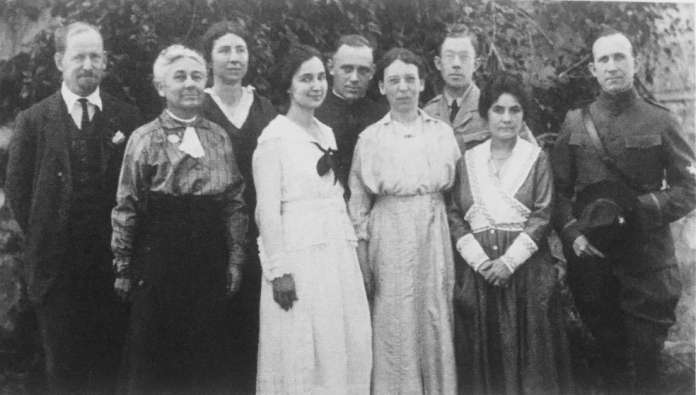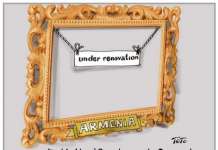
Steve Kerr just coached the Golden State Warriors to the best season in NBA history. He surpassed his own record when he played shooting guard on Michael Jordan’s 1994-95 Chicago Bulls. Kerr holds the record for best three-point field goal percentage in league history. He is a six-time NBA champion (five as a player and one as a coach) and is looking to capture his seventh this season. But Steve Kerr’s accomplishments on the basketball court pale in comparison to his grandfather’s humanitarian achievements.
Steve Kerr’s grandfather Stanley Kerr worked for the American Near East Relief (now Near East Foundation), which organized the world’s first large-scale, modern humanitarian project in response to the Armenian Genocide. After the end of World War I, Stanley Kerr was given the task of relocating Armenian Genocide survivors to Marash. While working in the Near East, Kerr met fellow relief worker Elsa Reckman, who would become his wife. Elsa also taught math at the Marash Women’s College. My grandmother Anna (Kalpakian) Kherlopian was from Marash and knew the Kerrs personally.
After the Great War, French forces were in control of Marash. However, war broke out again in the winter of 1920 and the French army abandoned the area. This left the remaining Armenians to face massacre once again. Churches and schools were burned to the ground with innocent civilians inside. An ancient civilization was completely uprooted.
Stanley Kerr wrote about what he witnessed in The Lions of Marash. His book also incorporates a collection of other eyewitness accounts from missionaries, clergy, doctors, and officials. He concluded his memoir with these words: “Of the eighty-six thousand living in the district of Marash in 1914, only twelve thousand were known to have survived …. The ancient city of Marash, with a history extending far into the dim past beyond the Hittite period and once largely populated by the Armenians, had finally become purely Turkish.”
Stanley Kerr left Marash in 1922 with a group of Armenian orphans to go to Nahr Ibrahim, Lebanon. He was in charge of an Armenian orphanage there with his wife Elsa before it closed. In 1925, Stanley earned a Ph.D. at the University of Pennsylvania and became the chairman of the Department of Biochemistry at the American University of Beirut.
Stanley Kerr’s son, Malcolm Kerr, followed in his father’s footsteps and became an academic. He later went on to become the president of the American University of Beirut. Tragically, on January 18th 1984, Malcolm was assassinated in the midst of the Lebanese Civil War. Steve Kerr was a freshman playing ball for the University of Arizona when he heard of his father’s murder.
When reading about the extreme atrocities and massive loss of life in the genocide, it is easy to lose hope in humanity. However, focusing on the people who offered precious help in that circumstance will enable us to see the goodness of humankind. The Kerr family is one of those lights within the dark chapters of Armenian history. They exemplified moral courage by their willingness to leave the comfort of America to educate and serve widows and orphans in a distant land. For us today, the question becomes whether we have a duty not only to celebrate their legacy but also to emulate it. Scores of his former students of the American University of Beirut, Lebanont, fondly remember Dr. Staney Kerr as a great educator and humanitarian, the savior of hundreds if not thousands of Armenian orphans, survivors of the Armenian Genocide.











